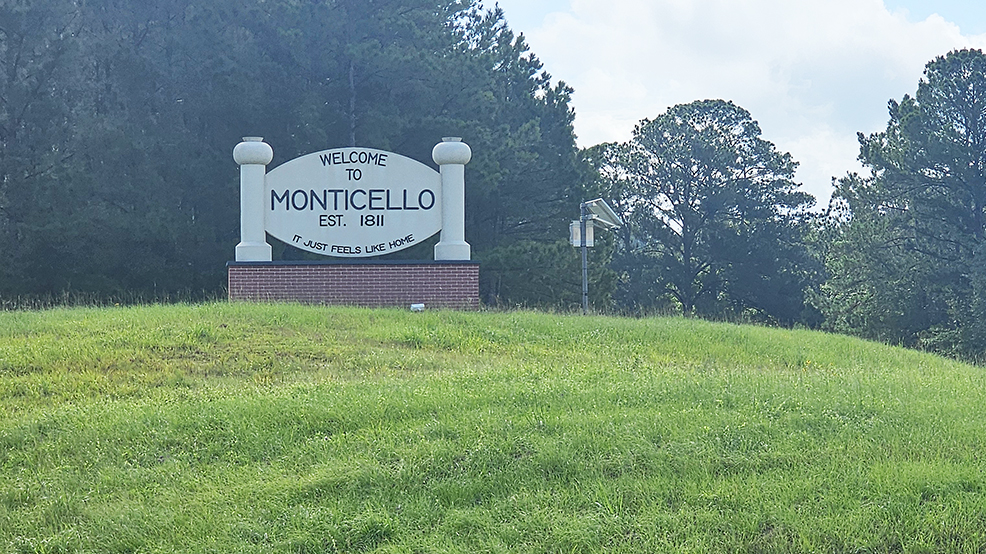It’s sometimes tough to tell someone
Published 7:26 pm Saturday, September 17, 2016
Baptists across the state are being challenged to share their faith through the “Tell Someone” project. The idea is simple: As Christians, it’s our job to tell others about Christ.
But I don’t do that simple act often enough. I’d like to think that I’m always willing to share my testimony, but it doesn’t happen as often as it should. As a missionary, I’ve told hundreds, if not thousands, of people about Christ and how he has changed me. But I’ve not done it enough in my day-to-day life.
Sadly, it’s easier to share my faith in South Africa than in my hometown. Maybe it’s more difficult to be open about my faith here because it’s hard to be vulnerable in front of people I know.
Trending
But that’s no excuse. So below is my effort to “tell someone.” As publisher of this newspaper, I have a unique platform that allows me to reach thousands of Lincoln Countians. Hopefully, my story will reach them and will help them see just how much God loves all of us.
I went to church as a child and will be eternally grateful for parents who took me every time the doors were open. I even walked to the front of a church as a 12-year-old to profess my belief in Christ. But at the time, my desire to be a Christian was limited to my fear of Hell. A fire-and-brimstone evangelist had convinced me that Hell was real and that’s where I was headed.
But after that nervous walk to the front of the church, nothing much changed. I knew about Christ but didn’t understand what it meant to love him, to have a relationship with him or to serve him. So when one of life’s many storms hit a couple years later, I didn’t have the kind of faith necessary to deal with it.
As a 14-year-old, I developed symptoms of what eventually was diagnosed as a rare form of muscular dystrophy. My older sister had suffered with the disease most of her life, so it wasn’t a huge shock that I also had the disorder.
But being told I had a disease that would keep me off the tennis court and baseball field and would eventually take my ability to run and walk was life-changing for an immature, young teenager.
Lacking the faith needed to handle that sort of event, I turned to something else to help deal with the pain and disappointment I was feeling. I found alcohol, and drugs later, to be the perfect way to forget my troubles.
Trending
So for the next three or four years, I ingested as much of both as I could. That destructive habit was made easier by friends who were doing the same.
If I was drunk — or high — it didn’t matter how much I hated God for cursing me with that disease. At least I saw it as a curse at the time. It’s not that I didn’t believe in God then, I just didn’t believe he cared about me.
Looking back, it’s easy to see how ignorant and immature I was. But my teenage self just couldn’t do anything but be angry.
So I continued to live a life in direct opposition to God. I shouldn’t have survived it, but God’s grace was sufficient to see that I did. He loved me enough to keep me alive until I could see just how much he cared for me — and how fervently he was pursuing me.
To keep a nagging friend off my back, I went to a church camp as a senior in high school and for the first time saw people who truly followed Christ and served him. I should have seen the same thing growing up in church, but I was too self-absorbed and angry to notice then.
I left that church camp with a love and desire for Christ that I carry to this day. What had become a regular drug and alcohol habit didn’t magically disappear overnight just because I was now a Christian. But I had something to lean on besides those vices. I had the knowledge that God cared for me and wanted me to know and love him.
I still had muscular dystrophy. I still knew that it would one day take so much from me. I was still hurt and angry. But I knew that none of that really mattered. I knew that the only thing that mattered was that I knew Christ.
So I took that message everywhere I could in college and I told anyone who wanted to listen. And while I was taking my story to a group of kids in Texas, I met a girl. At that moment, I could see that God’s plan was perfect, right down to the disease that I hated.
Without that disease, I wouldn’t have been in Texas that summer. Without that disease, I wouldn’t have come to know Christ the way I do. So, as hard as it is to admit to myself sometimes, I’m thankful for it.
And I’m thankful for a God who was patient enough to wait for me to see that his plan is best. Who wouldn’t want to follow a God like that?
Luke Horton is publisher of The Daily Leader. Email him at luke.horton@dailyleader.com.





